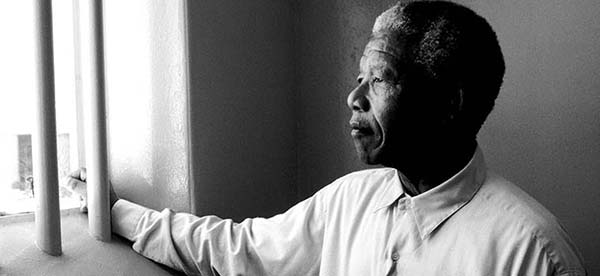“You are not big enough to accuse the whole age effectively, but let us say you are in dissent. You are in no position to issue commands, but you can speak words of hope. Shall this be the substance of your message? Be human in this most inhuman of ages; guard the image of man for it is the image of God.” Thomas Merton.
Apartheid, which means ‘the state of being apart, was a system of racial segregation in South Africa enforced through legislation by the National Party (NP) governments, the ruling party from 1948 to 1994, under which the rights of the majority black inhabitants were curtailed and Afrikaner minority rule was maintained. Apartheid was developed after World War II by the Afrikaner-dominated National Party and Broederbond organizations and was practiced also in South West Africa, which was administered by South Africa under a League of Nations mandate (revoked in 1966 via United Nations Resolution 2145), until it gained independence as Namibia in 1990.
History shows that racial segregation in South Africa began in colonial times under Dutch rule. Apartheid as an official policy was introduced following the general election of 1948. Legislation classified inhabitants into four racial groups, "black", "white", "coloured", and "Indian", with Indian and coloured divided into several sub-classifications, and residential areas were segregated, sometimes by forced removals. Non-white political representation was abolished in 1970, and starting in that year black people were deprived of their citizenship, legally becoming citizens of one of ten tribally based self-governing homelands called bantustans, four of which became nominally independent states. The government segregated education, medical care, beaches, and other public services, and provided black people with services inferior to those of white people.
Apartheid sparked significant internal resistance and violence, and a long arms and trade embargo against South Africa. Since the 1950s, a series of popular uprisings and protests was met with the banning of opposition and imprisoning of anti-apartheid leaders. As unrest spread and became more effective and militarized, state organizations responded with repression and violence. Along with the sanctions placed on South Africa by the West, this made it increasingly difficult for the government to maintain the regime.
Reforms to apartheid in the 1980s failed to quell the mounting opposition, and in 1990 President Fredrik Willem de Klerk began negotiations to end apartheid, culminating in multi-racial democratic elections in 1994, won by the African National Congress under Nelson Mandela. The vestiges of apartheid still shape South African politics and society. Although the official abolishing of apartheid occurred in 1990 with repeal of the last of the remaining apartheid laws, the end of apartheid is widely regarded as arising from the 1994 democratic general elections.
Nelson Mandela launched a protest and fought heroically against apartheid and racial discrimination. Even though, he spent 27 years behind iron bars, he did not succumb to injustice and oppression. He cherished moral, freedom and justice. He broke the chains of slavery from the feet of his black nation. Mandela made the world, especially the biased Whites of South Africa, understand that being black is no longer a crime. He taught them that human dignity does not lie in color but in one’s mind and mentality. He fought for the rights of his nation fearlessly and with strong determination till he achieved what he wanted. Within 95 years, he lived a life of virtue. Mr. Mandela states his aim as: “I have fought against white domination and I have fought against black domination. I have cherished the ideal of a democratic and free society in which all persons live together in harmony and with equal opportunities. It is an ideal which I hope to live for and to achieve. But if needs be, it is an ideal for which I am prepared to die.” Indeed, those who sacrifice their life for humanity, for justice, for freedom and rights of oppressed nation and fight against immoralities, injustice and oppression, the history keeps their names proudly and carries them to the next generation to learn how to live and how to embrace freedom and virtue. The great personalities do not necessarily belong to one nation or society but to all nations around the world.
I believe that apartheid originated from ethnocentrism. To know ethnocentrism deeply, let us see the example. One of the most well-known and the most horrible examples of ethnocentrism to ever occur was during Nazi Germany. Adolf Hitler decided that he hated Jews, as well as some other groups of people, and had many innocent people slaughtered in concentration camps. They did not deserve the torture that they received, and this was clearly an extreme case of ethnocentrism. While prejudice certainly leads to problems, very rarely in history has ethnocentrism led to the mass slaughter of millions of innocent people.
It is worthy of mention that Mr. Mandela’s life was a good example for our politicians to learn. Our country is in urgent need of a leader like him. We also need a leader to fight against injustice, corruption, racial discrimination, ignorance, etc. We need a leader to save our society from current social disorder, anarchy and political chaos. We need someone to bring glory for our nation and society through his/her devotion and dedication. Of course we need a leader to bring freedom and democracy in their true forms to our people. The men of history are born to teach the societies, the nations and politicians how to cherish morality and humanity in their life. It is prayed and hoped that the life of Mr. Mandela and other historical personalities awake our leaders and change their characters for the better.
I would like to conclude my article with the nice saying of Thurgood Marshall, “A child born to a black mother in a state like Mississippi…has the same rights as a white baby born to the wealthiest person in the United States….

